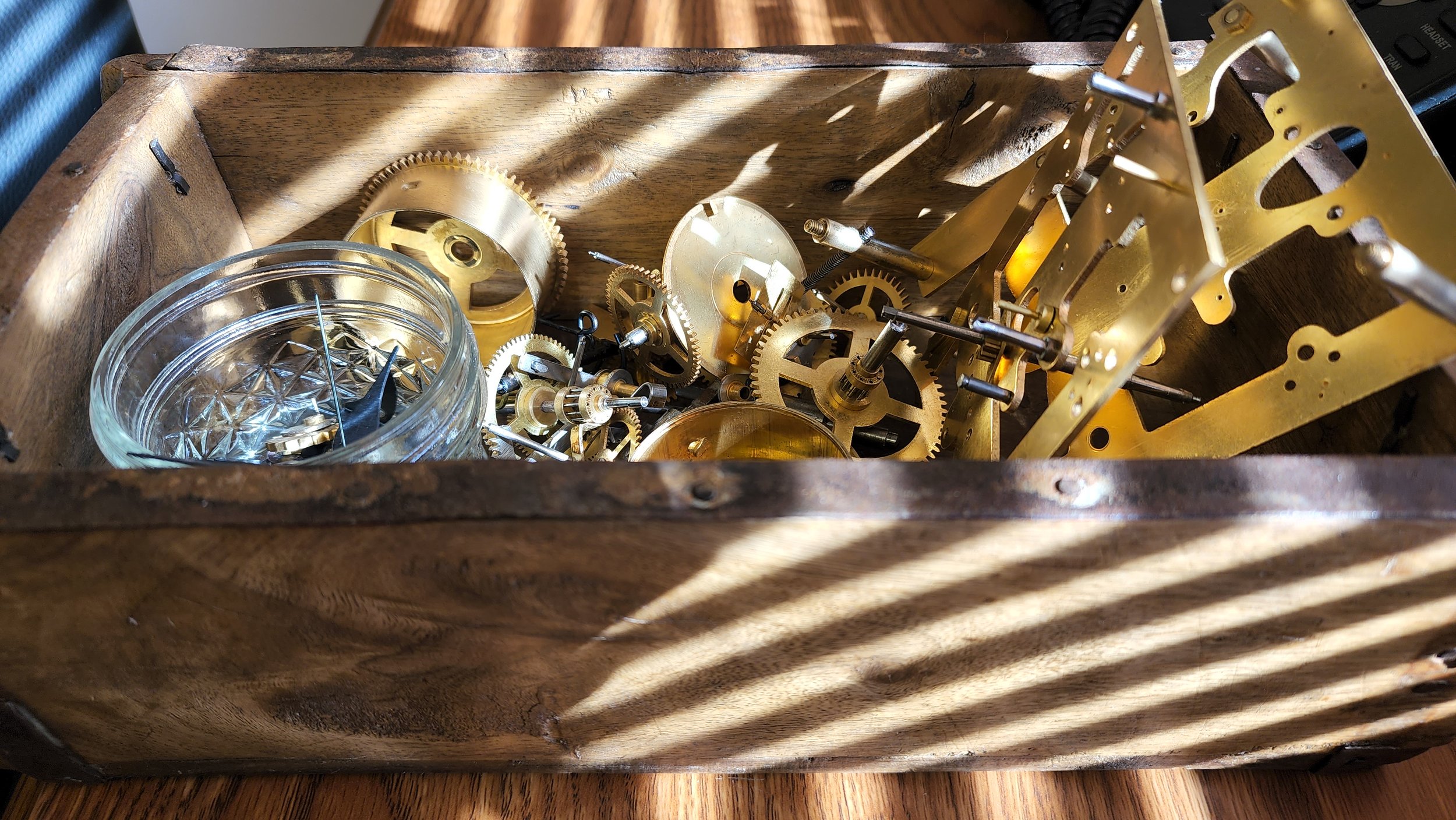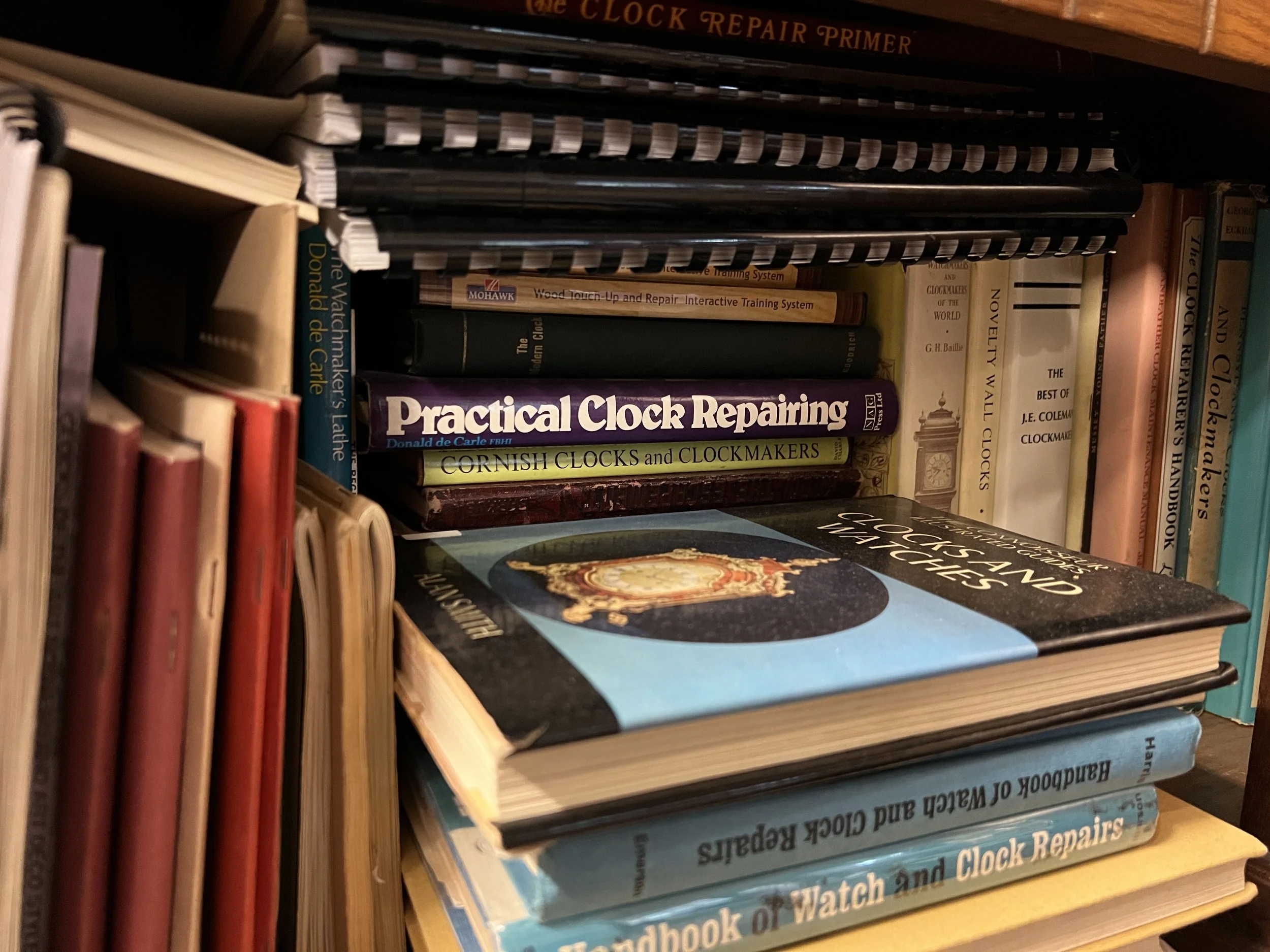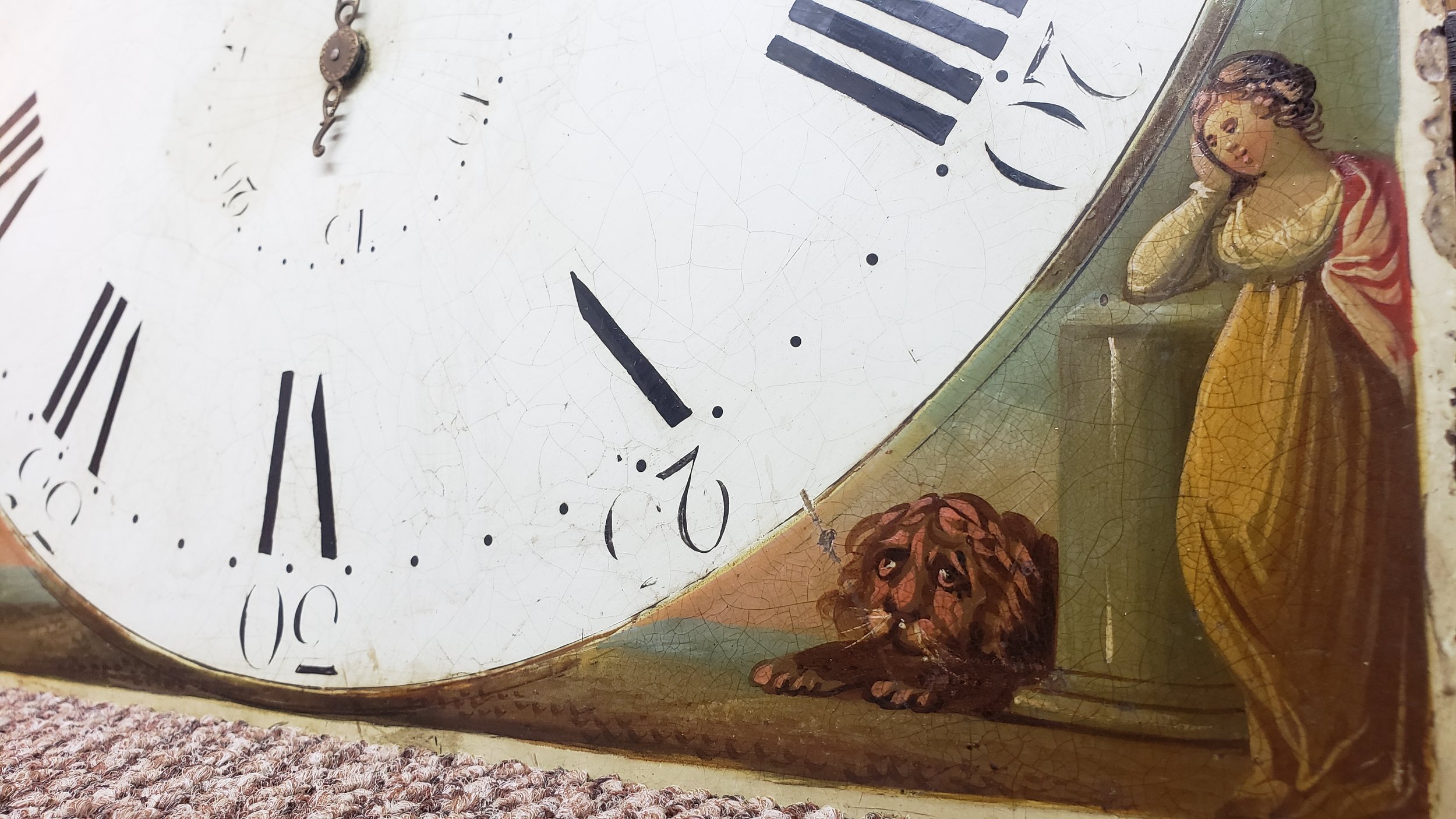
How To CHoose A Clockmaker

Some people might ask, “What’s the big deal?” Does it really matter? If you only have one clock, or perhaps an inexpensive clock, maybe it won’t matter to you. However, if you have a clock you cherish, new or old, or if you have many clocks, it should matter. A quality repair is a wise investment in your valued possession.
Of all the service trades in the world, clockmaking is likely the only one that is not subject to rigorous licensing standards, either locally or nationally. This allows many people to enter the trade of clockmaking, whether they are qualified or not. For this reason, there are many more non-trained clockmakers than there are professionally trained clockmakers.
For every practicing, fully trained professional, there are likely to be five to ten hobbyists. Most of these people do not do any repair for the general public as they are only repairing the clocks in their own collection. However, there are quite a few, who after doing this for themselves, will eventually open a repair shop and begin charging the unsuspecting clock owner for their less-than-ideal work. (See my “Hall of Shame” page for some sad and oftentimes humorous examples, provided it was not your clock they worked on! Because of the abundance of hobbyists, who more than likely, are not well-trained, and the value most people place on their clock, some guidelines may help you to find the right clockmaker for you. So, for those who are interested, we offer the following information for you to consider.
First of all, if possible, once you have a clock repaired you are going to be far better off returning to that same clockmaker (assuming that person is competent) if it needs repair again. This is particularly true if you have had a clock restored or overhauled. The reason is that he or she knows what they have or haven’t done, and this will have a bearing on all future repairs. Most good clockmakers are very concerned about their reputation and the longevity of their repairs. If this person has overhauled your clock, you are likely to be given special prices for scheduled maintenance, and, if he sees something failing in a clock he or she has restored, even though it is beyond the warranty period, he is more likely to take care of it, either for nothing, or at least, at a reduced rate. Of course, I can’t speak for all clockmakers, but this happens to be how we run our shop, and I suspect that many others who care about their reputation do so as well. If you take it to someone else, they are not likely to be so accommodating.
The reason I mention this first is that, if you are likely to be going back to this clockmaker again and again, you want to choose someone you like, someone who is not only competent but also friendly and informative, someone you can reach and will return your calls or emails promptly.
If you are uncomfortable during your initial experience, as in your first phone conversation or when you are being given an estimate, it is time to ask yourself, “Do I want to leave my clock with this person?” Remember, if you do leave it, you will see them at least once more when you pick up the clock and you may need to call them later with a question. If there is a problem after you pick it up, you might need to take it back. If you are uncomfortable the first time, why subject yourself to continued visits to this shop?


I don’t know about you, but I would rather never have to spend money to get anything repaired, so when I do I am looking for as pleasant an experience as possible when I go to pay for it. A friendly clockmaker likes what he does and his enthusiasm shows. He will usually greet you with a smile and a warm hello. For the most part, you can judge the personality of a shop very quickly. First impressions are very important, whether in person or on the phone.
Once you arrive, take a look around, what do you see? If you can’t see the shop, what is the waiting area like? Clock repair is meticulous work and requires attention to detail. A good clockmaker with good work habits knows this. A sloppy shop could mean a sloppy clockmaker. If he doesn’t pay attention to the details you do see, perhaps he won’t care about the things you don’t see.
Being informative is very important. Some customers don’t care why a clock needs what it needs, they just want it fixed. However, I have found that most are curious about their clocks and want to know why it doesn’t work, why it failed and how it is to be repaired. Also, there are circumstances where there may be different ways of looking at how the clock might be repaired. There can be short term and long term approaches. (See our “Our Estimating Philosophy” page for more information about this.) The problem you were experiencing that caused you to bring in the clock may be its most immediate need, but a good clockmaker will look ahead for potential future problems and advise you accordingly. Some repairs may be guaranteed, where others are not. If there is no guarantee, there may be a risk on your part. If there are options, does he explain them to you? When you are there to pick up your clock, will he take the time to explain to you how to set it up, wind it, set the hands and regulate it?
Will you be able to get a hold of this person again if you need to? Many non-trained “clockmakers” only work part time. If he or she is not there to answer your call, do they have a way for you to leave a message? If they do, are they quick to return the call? Do they keep regular hours so you will know when they are in?
Another important factor is how long the person has been in business. I would be very wary of someone who has only repaired clocks for a year or two. A recent book, Outliers: The Story of Success, by Malcolm Gladwell, studied what it takes for someone in any given profession to become proficient at their particular skill. That skill could be painting, playing the guitar, carpentry, or repairing clocks. The book states that, on average, it takes approximately 10,000 hours of practice to become competent. 10,000 hours is the equivalent of 5 years of full time (40 hours per week) work. Given the fact that there are hundreds of clock types it usually takes even longer for most clockmakers to get really good at repairing the vast number of clock types that exist. Remember you can only become proficient on the things you actually repair. If you only get a certain type of clock a couple times a year it will take many more years to gain significant experience on that type. So then, all other things being equal, you definitely want to give the edge to someone who has been in business the longest. Also, if someone has been in business for a long time it is more likely they have a good reputation and have been serving their customers well.

Antique painted white Dial

Now we come to competence. Does the clockmaker have the ability to do the job and do it well? This is the hardest part for a clock owner to judge. Short of receiving an excellent recommendation, the best thing to do is ask questions. How long have you been doing this? How did you get started? How did you learn the trade? You don’t need to grill the person; you only have to sound interested. If you are concerned enough, do not be afraid to ask if any references are available. A quality repairman will willingly and joyfully supply this information to you. Of course, with today's modern internet, looking up reviews is very helpful.
In my opinion, the best way to learn clock repair is through an apprenticeship. During an apprenticeship a clockmaker may very well repair several thousand clocks of all kinds. You can learn a great deal from a book, you can learn a great deal from a week long course, but until you have repeated practical experience, all you have is head knowledge. Even better than just an apprenticeship, is a person who has exposed himself to more than one form of training and has a dialogue with other competent clockmakers. Otherwise, a clockmaker may never realize how much he does not know.
These are just some simple guidelines to think about. Remember there are always exceptions to every set of rules. A clockmaker may be unpleasant but it doesn’t make him incompetent. A person with a sloppy shop may be “too busy” to organize. A person who is hard to get a hold of may be a very good repairman, just a lousy businessman. A person who only learned from a book may be so diligent that he does a wonderful job. An amateur may be very good at what he does but lacks the experience of a full time clockmaker.
In my opinion, nothing beats proper training (apprenticeship) as a foundation, coupled with years of experience, followed by continued education and contact with others in the trade.
In addition to all of this, if you can find someone in your area who has been certified in clock repair you are quite lucky. The American Watchmakers Clockmakers Institute offers a Certification program for watch and clockmakers. If you do not live in the Central-Ohio area and wish to find a certified clockmaker in your area, try the referral section (see link below) on AWCI’s web site. To learn more about what AWCI Certification is and what it means to you, see my “What Is Certification” page.
AWCI’s “Find a Professional” Referral Page